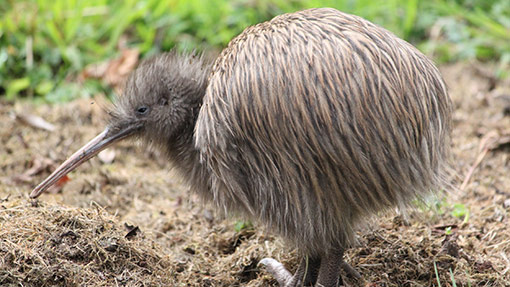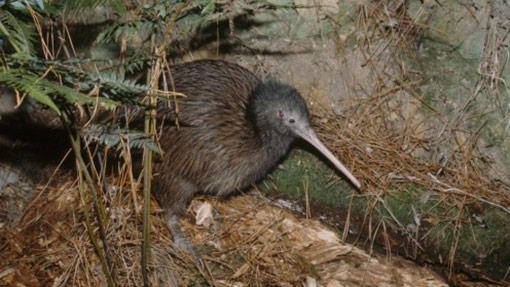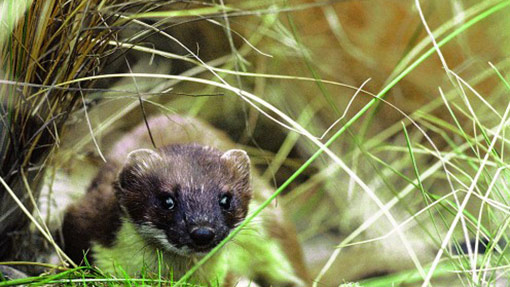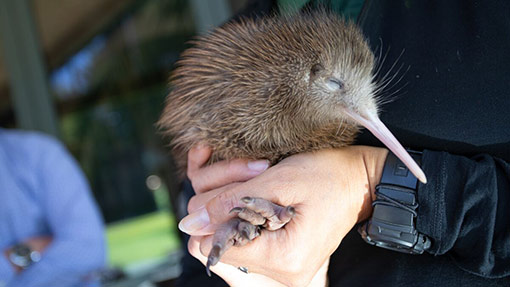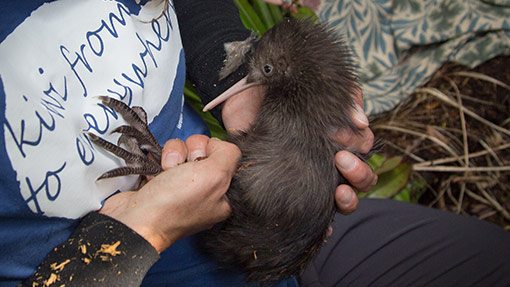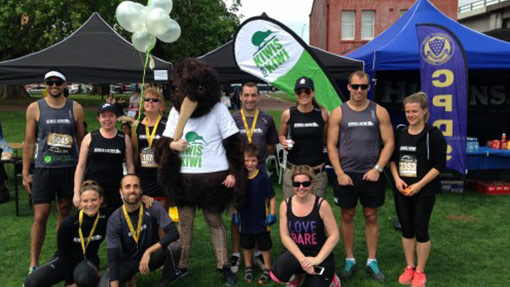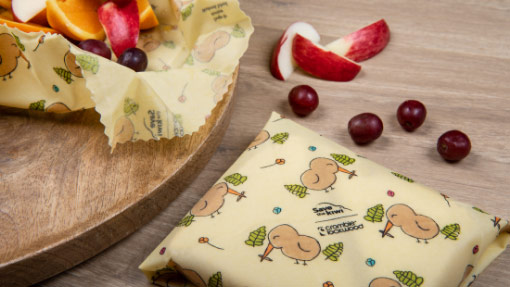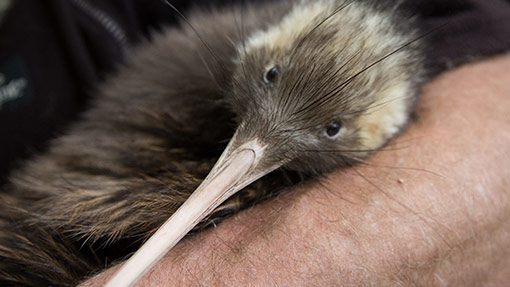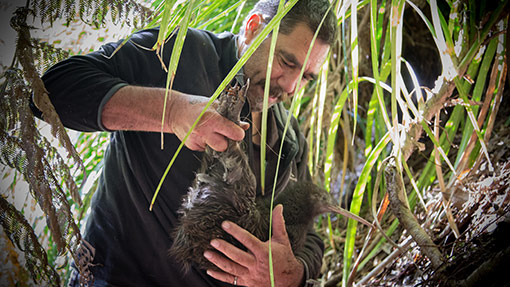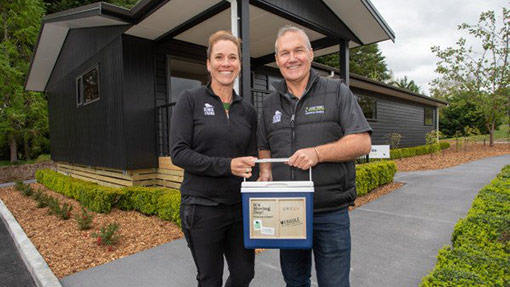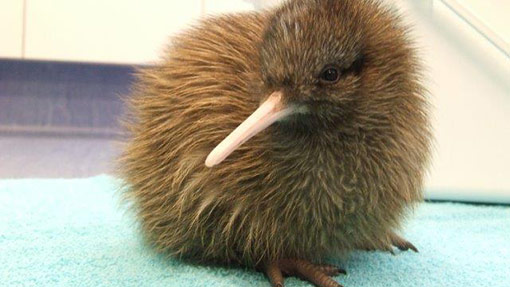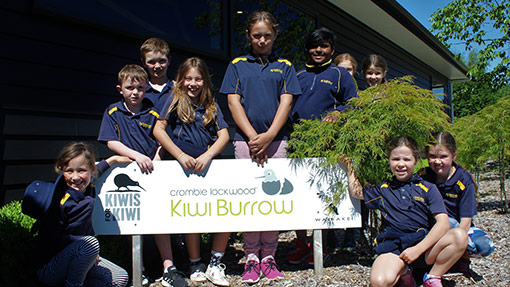For as long as she can remember, Emma Craig has been passionate about caring for the environment.
“I can’t ever remember a time when I wasn’t invested in us humans doing better for Papatūānuku. I recall being this little kid in the 80’s seeing environmental degradation happening unapologetically at every turn, and looking up at the adult leaders around me, not fathoming why they weren’t doing something to address it. Here we are decades later, and it seems at last humans are starting to realise the folly of our choices with enough cohesion to take action.”
Emma has worked with or around kiwi for the better part of 25 years. Before joining the Save the Kiwi whānau, she was part of the Whangārei Kiwi Sanctuary team and the ranger on Matakohe-Limestone Island, a kiwi kōhanga site in the Whangārei Harbour.
“While I was working in the Whangārei Kiwi Sanctuary team we had a change of focus, from concentrating primarily on mustelids as a threat to kiwi, to addressing dogs. This was on the back of research that showed the life expectancy of kiwi in Northland was greatly reduced compared to other regions, and this difference was attributed to a higher local risk of dogs killing kiwi. This background has been really beneficial for my current role of dog specialist.”
While the national average life expectancy of a kiwi can range between 40 and 50 years, in Northland it hovers around just 14 years. Funded by Jobs for Nature, Emma’s dog specialist role takes the knowledge gained over the last couple of decades of addressing dogs as an issue for kiwi and applies it at scale.
“While not completely unique to Northland, the issue of dogs seemed to have a bigger impact on our kiwi populations than in other areas where kiwi were being monitored. We have known dogs are a significant threat for kiwi for years, and although there haven’t been any major breakthroughs in how to address the risk dogs pose to kiwi, I think there is now a greater understanding that action is required.
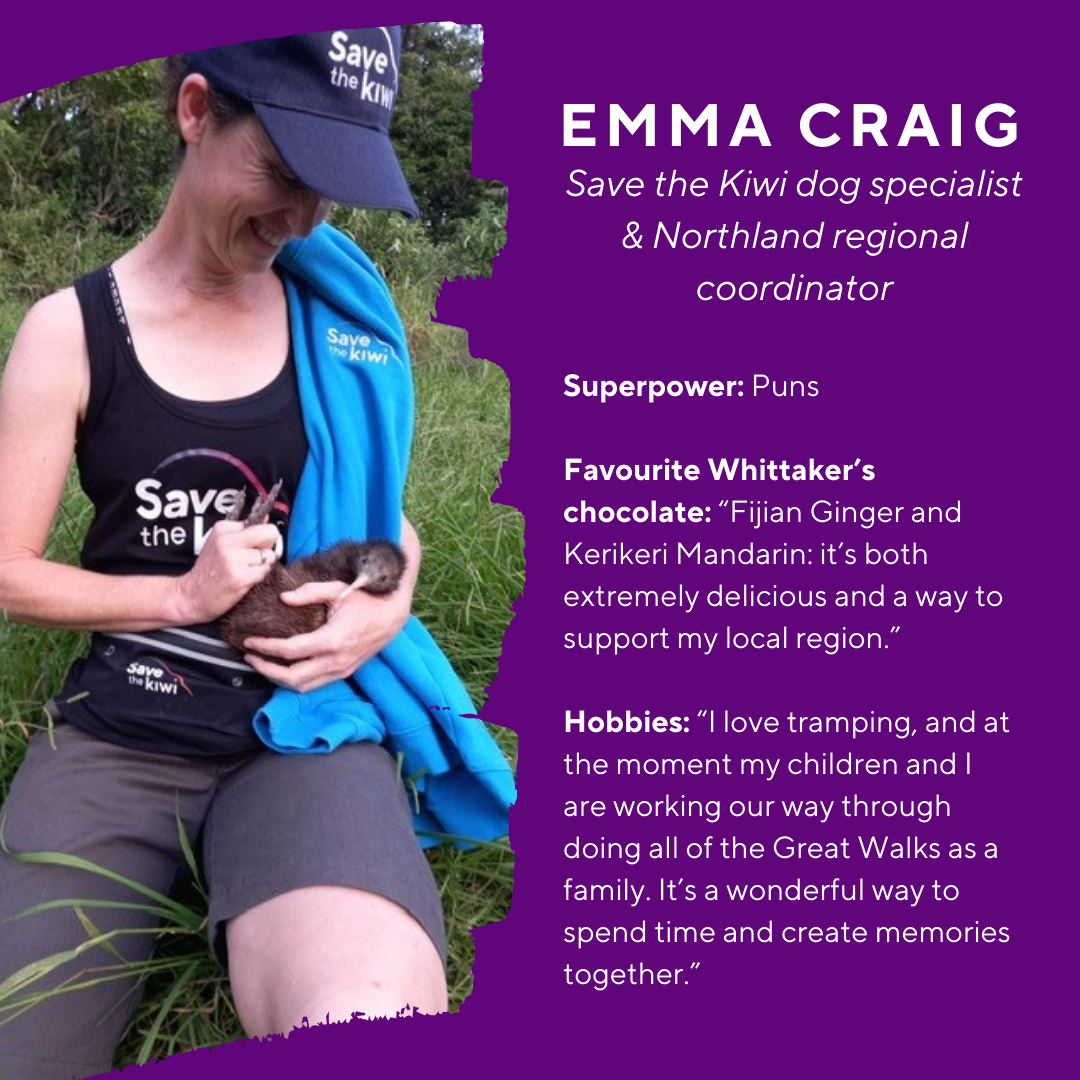
“To really reduce dogs as a threat we need to get the dog owners on board, and I think we are getting better at looking for common ground and ways to have kiwi and dogs living alongside one another (as opposed to the previous ‘kiwi or dogs’ attitude). There are many groups and individuals incentivised to see well-controlled dogs in our communities, for a plethora of reasons (not just conservation-focussed). Working with others who want the same results will get us there faster.”
As part of her dog specialist role, Emma is also the Save the Kiwi lead for the Kiwi Avoidance Training programme, run in partnership between Save the Kiwi and the Department of Conservation. Between January and March 2024 alone, 855 dogs went through the kiwi avoidance training programme.
“Kiwi Avoidance Training is growing in capacity to meet an increasing demand across the country. It’s good that there are so many responsible dog owners out there wanting to do all they can to protect kiwi. My job is to ensure that we keep the same high standard of training for all dogs as we expand our team. Other parts of my role are in their infancy as I make connections and create resources to sit alongside KAT to enable dog owners to ensure their beloved pets don’t put kiwi at risk.”
Just over one year into the dog specialist role, Emma has made three key conclusions.
“One: there can be no ‘us and them’ when it comes to dog owners. Dogs are a highly valued and important part of our community. We will do much better trying to work with dog owners to value and protect dogs and kiwi in the places that they both live.
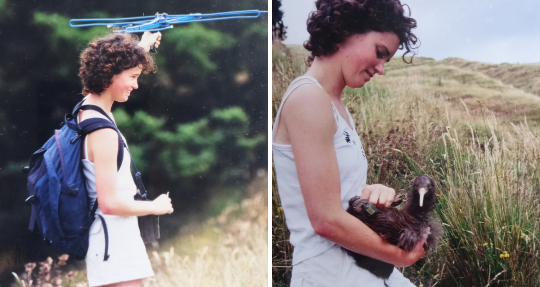
“Two: there is no single solution. What works for one community won’t necessarily work for another. Some need a carrot, some need a stick, most need a bit of both.
“And three: the dog issue isn’t unique to conservation. It’s a community-wide issue that causes stock loses, injury to other pets, and injury to people. Working collaboratively with others who are active in this space will give us better gains, and when dogs are well controlled everybody wins – including the dogs themselves.”
In March 2024, Emma was part of a translocation team at Sanctuary Mountain Maungatautari. She worked alongside other kiwi handlers from Save the Kiwi and other organisations to muster suitable kiwi in the sanctuary and prepare them to be transferred to safe places in the wild. During the translocations, Emma was also part of a training team that gave trainees hands-on exposure to kiwi conservation in action.
“What’s happening at Maungatautari is such an incredible example of what can happen when we refine a method well, then supersize it. Previously kiwi translocations for me have meant 10-20 kiwi per season, but the teams at Maungatautari deal with these sorts of numbers daily. Having such an ambitious project would have seemed inconceivable a couple of decades ago. I wonder what we will be achieving in another 20 years’ time.”
So, what gets Emma out of bed in the morning?
“I prefer to focus on the other end of the day. I have the privilege of hearing kiwi calling from my home every night. I have no doubt that this would not be happening if it wasn’t for the huge effort put into kiwi conservation over the last few decades.
“The work we are doing with kiwi has made a measurable positive difference, and we need to keep going to ensure we keep the gains we’ve made.”
